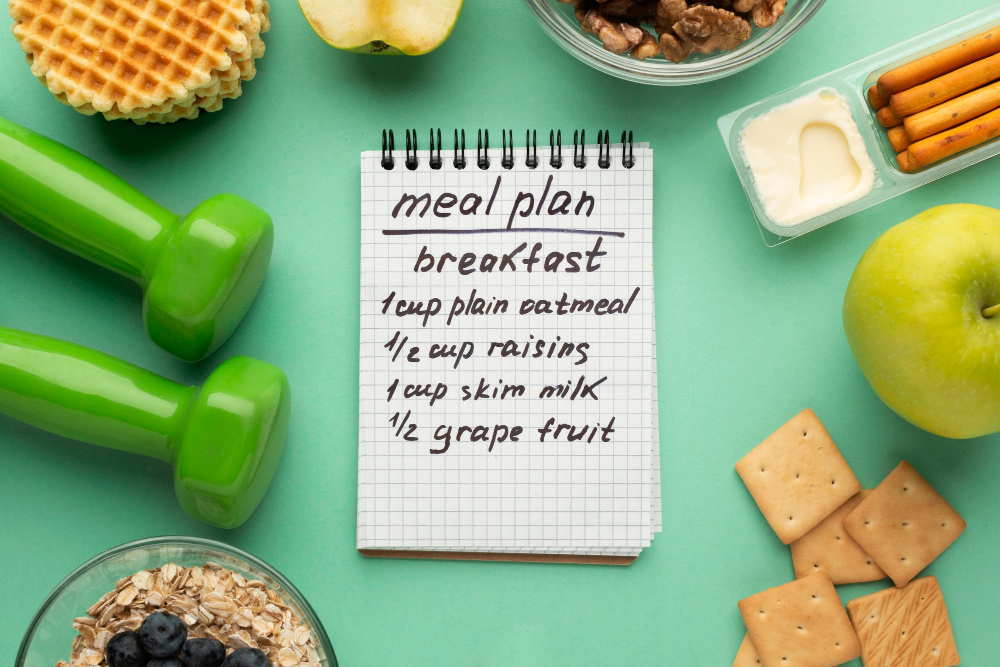Introduction
If you are looking forward to losing weight, it is of paramount importance to set goals. Thus, you will be able to manage expectations. Moreover, it helps track progress while staying on track. Well-planned and realistic weight loss goals are necessary to keep you motivated and focused at the same time. So, they offer a realistic plan for the change, and thus you can choose a healthier lifestyle.
Excessively difficult and unrealistic weight loss goals can do more harm than good. So, it is important to choose the steps below to shed the extra kilos and improve overall health. Choosing realistic goals can be a challenging process. So, you have come up with this write-up so that you can set realistic weight loss goals:
Consider it short-term.
You do not need to worry if you have about 10, 50, 20, or 100 pounds to lose. If you have to lose a lot of weight, it is important to come up with a mini goal to lose almost 5–10% of your body weight. As you set the short-term milestones and gain success in achieving them, you will be able to stay focused on the progress. In addition, it helps boost your self-confidence so that you can live a longer life.
Setting smart goals
Choosing the goal-setting strategy happens to be on the SMART goal checklist. You should make sure that the weight loss goals, the outcome goals, and the process goals accomplish the below criteria:
Create specific goals
A good goal involves certain details. For instance, if you make a goal that you need to exercise more for, it cannot be counted as a more specific goal. As you make a goal to walk 30 minutes daily post-workout, it is regarded as a specific goal. It states what you are going to do, for how long you are going to do it, and the time for which you will do it.
Come up with measurable goals
As you measure a goal, you should monitor the progress toward meeting the specific objective. For example, if you make a goal of eating better, it cannot be measured as a goal. However, if you set a goal that you need to consume 1,200 calories daily, it is considered a measurable goal.
You should make sure to create goals that are meaningful and relevant. You should ask yourself what you are willing to achieve from your weight loss goals, after which you should choose the goals.
Concentrate on process goals.
To set the necessary goals for weight loss, you should make sure to concentrate on the process and the outcomes. An outcome goal involves deciding what you are willing to accomplish at the end. Though such a goal gives the necessary target, it does not emphasize how to reach the goal. The process goal happens to be the most important step to achieving the desired outcome.
The process goal involves including five servings of vegetables and fruits daily. In addition, you need to walk for 30 minutes daily and drink water during meals. The process goals are important for weight loss, as you focus on the habits and changing behaviors that are important to losing weight.
Opting for the proper diet strategy
As you draft your weight-loss goals, you need to adopt a certain diet strategy. Simply hopping on the treadmill is not going to burn the extra kilos you gain after consuming a diet filled with processed foods. The best thing is that you do not need to say bye to carbs. Moreover, you do not need to create any sort of drastic change in your eating habits.
Instead, you can make certain lifestyle changes and adopt them as an integral part of your diet. You also need to adopt specific short-term goals at the same time, such as sugar-sweetened beverages; avoid drinking beverages filled with artificial sweeteners; and replace them with water.
Work on the fitness regime.
Performing exercise alone does not help you reach your goal weight. It is important to set realistic fitness goals so that you can remain motivated. You should make sure to run around 10 minutes daily so that you can find an improvement in strength.
Be ready for setbacks.
Setbacks are regarded as a natural part of behavior change. If you are going to make certain changes in your life, you need to deal with the setbacks. It is essential to anticipate setbacks and come up with a plan beforehand so that you can deal with them easily. Moreover, you should recognize the potential barriers and brainstorm different ways so that you can overcome them and stay on course.
Readjust and reassess the goals.
You should be ready to change the goals once you make certain progress in the weight loss plan. Once you start with small successes, you should become ready to accept larger challenges. Moreover, you should make sure to adjust the goals so that you can fit the new lifestyle.

